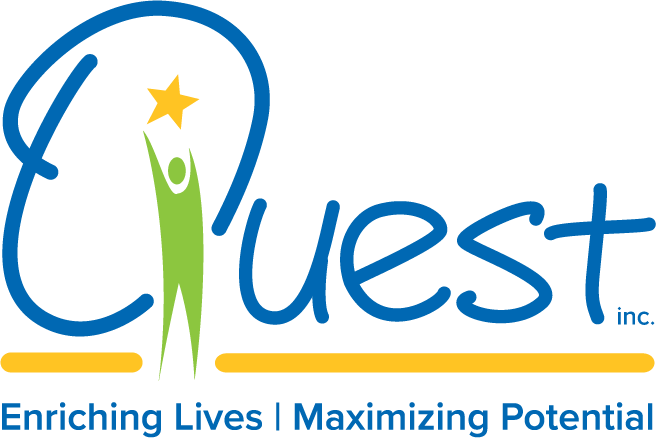What are developmental disabilities?
Developmental disabilities is an umbrella term that describes conditions that alter the trajectory of an individual’s physical, intellectual and/or emotional development. Developmental disabilities occur in the early stages of a child’s life and are present throughout life.
Autism Spectrum Disorder (ASD) is one of the many developmental disabilities. It is also one of the most well-known. For this post, we will be focusing on ASD.
What to know about Autism Spectrum Disorder
ASD affects 1 in 36 children. That means that it is likely that you know someone who has ASD. It is present at birth but is not diagnosed until a child is around 2 years old. At this point, the child may stop reaching developmental milestones, which is one of the first indicators that a child may have ASD.

Common symptoms in infants:
- Poor eye contact
- Limited speech
- Not smiling within the first year
- Not responding to sounds, voices or their name
Other common symptoms
- Repetitive motions: Rocking, jumping, twirling, hand-flapping
- Being in constant motion: Pacing around and other behavior that seems “hyper”
- Fixation on certain actions or objects
- Being tied to a specific routine and being visibly upset when the routine deviates
- Sensory sensitivities: such as being sensitive to bright lights, loud sounds and touch.
There is still a lot that is misunderstood about ASD. Here are some common misconceptions and myths about ASD:
- Kids with Autism don’t want to make friends: Not true. Being social may make people on the spectrum feel very anxious, but the desire to connect is often there, and it’s up to family members, teachers and therapists to help them socialize.
- Autistic children can’t learn: They absolutely can. There are individuals for whom learning is complex, and progress will be slow, but things can change. Their lives can improve slowly and steadily if teachers and family members are persistent and use an effective teaching method tailored for that child.
- People with ASD do not experience the full range of emotions and/or lack empathy. This is a common misconception, as people with ASD tend to communicate differently. However, this is not true and it can be hurtful to assume this.
- All Autistic people have savant skills, like “Rain Man.” Many people on the spectrum share some strengths, such as being visual learners or having an incredible visual memory, but not all can recite the phone book. Some do have amazing memory feats, but it is not common.
- Autism is an epidemic. The truth is that there is more known about ASD and therefore the definition of Autism has shifted and changed. Also, it is diagnosed earlier.
- Vaccines cause Autism. There have been many large-scale, gold-standard scientific studies regarding this theory. There is simply no scientific evidence to support this. Autism is complex and seems to be caused by many different factors, including genes and environmental influences.
- It is caused by poor parenting. “Refrigerator Parents” was a term coined in the 1950s and it became a theory for the cause of autism. It described parents who lacked warmth and this distant attitude caused their child to have ASD. This is not true and children with ASD have it from birth.
How to interact with someone with ASD
People with ASD may experience some difficulties communicating with others because they are less likely to notice nonverbal cues such as intonation and body language. They may also have a difficult time maintaining eye contact or sustaining a back and forth conversation.
If you are speaking to someone with ASD, try your best to avoid sarcasm and irony and be as direct and succinct as possible. They may also ask repetitive questions. Be polite and friendly and answer the questions as best you can.
We believe that challenging these misconceptions can create a more inclusive and accepting world for Autistic individuals. If you would like to learn more about people with developmental disabilities and how Quest, Inc. supports them, sign up for our newsletter.

